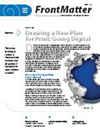两种接近自然的生活方式,一种文化景观的好处:比较欧洲偏远的东阿尔卑斯山的生活方式推动者和生活方式农民
IF 1.8
4区 环境科学与生态学
Q4 ENVIRONMENTAL SCIENCES
引用次数: 0
摘要
日益增长的财富使得经济上的人口流动从欧洲阿尔卑斯山的山谷向下迁移到(城市的)低地。经济限制之外的跨流研究仍处于起步阶段,特别是在偏远的东阿尔卑斯山。因此,我研究了奥地利阿尔卑斯山脉和意大利三个偏远地区的两种有意识的生活方式流动:一种是搬迁到山区社区的生活方式迁移者,另一种是没有农业背景进入山区农业的生活方式农民。我采访了25位搬运工和24位农民,了解他们在现场面临的挑战和机遇,以及他们与当地文化景观的互动。结果表明,他们的空间或社会流动性使他们拥有接近自然的生活方式;住房和土地使用权是他们面临的主要挑战。由于社会文化的同化,生活方式的迁移者——主要是阿尔卑斯以外的城市居民——倾向于重现促使他们搬迁的文化景观。大多数生活方式农民都是当地人,这使他们能够重新思考传统和再生农业。通过有意识地维护文化景观,两个群体都促进了当地社会经济和文化结构的保护和发展,这些结构对阿尔卑斯山周边地区的生存至关重要,因此也是阿尔卑斯山文化景观生存的关键。山区的空间,甚至更重要的是,社会生活方式的流动性具有巨大的潜力,往往被人口研究所忽视,也没有被当地政策制定者清楚地认识到。本文章由计算机程序翻译,如有差异,请以英文原文为准。
Two Close-to-Nature Lifestyles, One Benefit for the Cultural Landscape: Comparing Lifestyle Movers and Lifestyle Farmers in the Remote European Eastern Alps
Increasing affluence permits economically induced mobilities from mountain valleys in the European Alps downward to (urban) lowlands. Research on crosscurrents beyond economic constraints is still in its infancy, especially in the remote Eastern Alps. Hence, I studied 2 conscious lifestyle mobilities in 3 remote regions of Alpine Austria and Italy: those of lifestyle movers who relocated to a mountain community and lifestyle farmers who entered mountain agriculture without a farming background. I interviewed 25 movers and 24 farmers on their challenges and opportunities on site and their engagement with the local cultural landscape. The results show that their spatial or social mobility enables them to have a close-to-nature lifestyle; housing and land access are key challenges they experience. Due to sociocultural assimilation, lifestyle movers—mostly extra-Alpine urbanites—tend to reproduce the cultural landscape that motivated their relocation. Most lifestyle farmers are locals, which empowers them to rethink conventions and regenerate agriculture. By consciously maintaining the cultural landscape, both groups foster the preservation and development of local socioeconomic and cultural structures that are vital to surviving in the Alpine periphery—and thus key to the survival of the Alpine cultural landscape. Spatial and, even more so, social lifestyle mobility in mountain regions holds significant potential that is often neglected by demographic research and not clearly perceived by local policymakers.
求助全文
通过发布文献求助,成功后即可免费获取论文全文。
去求助
来源期刊
CiteScore
3.10
自引率
18.80%
发文量
36
审稿时长
4.5 months
期刊介绍:
MRD features three peer-reviewed sections: MountainDevelopment, which contains “Transformation Knowledge,” MountainResearch, which contains “Systems Knowledge,” and MountainAgenda, which contains “Target Knowledge.” In addition, the MountainPlatform section offers International Mountain Society members an opportunity to convey information about their mountain initiatives and priorities; and the MountainMedia section presents reviews of recent publications on mountains and mountain development.
Key research and development fields:
-Society and culture-
Policy, politics, and institutions-
Economy-
Bio- and geophysical environment-
Ecosystems and cycles-
Environmental risks-
Resource and land use-
Energy, infrastructure, and services-
Methods and theories-
Regions

 求助内容:
求助内容: 应助结果提醒方式:
应助结果提醒方式:


